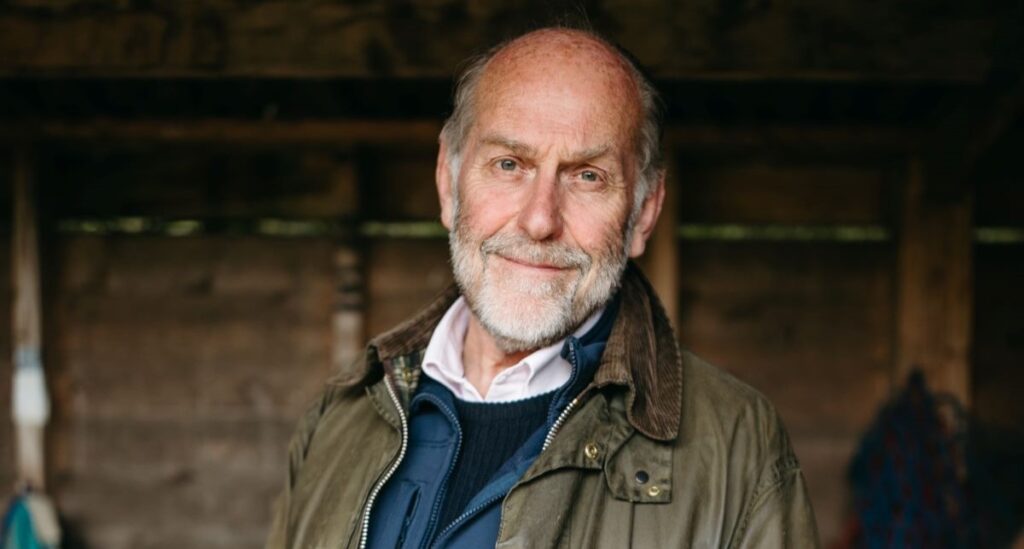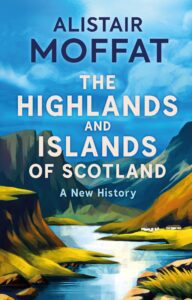Alistair Moffat on the books of his childhood, his despair at badly written novels, and his ancient alcove for reading.
The first book I remember reading:
When I was five or six, my mum took me down to the Carnegie Library in Kelso. Mr Bird, the librarian, looked over the counter at me for a moment or two and advised that I should start with Richmal Crompton’s Just William stories. I’ve never looked back and never forgotten Violet Elizabeth Bott’s frequent threat to scream (pron ‘thqueem’) until I’m sick (pron. ‘thick’). She had a lisp as well as a temper on her.
A book I recommend to everyone:
I loved and have often re-read Farmer’s Boy by John R. Allan. Set in the Aberdeenshire countryside at the outset of the 20th century, it is a loving, intimate, unsentimental and beautifully written snapshot of a rural life now long gone. Vivid, often very funny, it draws the reader into the heart of a lost farming culture. Going back many generations, my own family were farm workers in Berwickshire, and its red earth is grained into my hands, just as Aberdeenshire left an indelible mark on John R. Allan.
The best three books I have read in the last year:
I enjoyed bits of Legacy by James Kerr, good stories mixed with repetitive psychobabble. Its subtitle is What the All Blacks Can Teach Us About the Business of Life, and some of it is fascinating. The premise revolves around the reasons why the New Zealand rugby team is by far the most consistently successful team there has ever been. I also enjoyed SG MacLean’s The Seeker, a very unusual novel set in Cromwell’s London, and I very much liked Sebastian Barry’s Old God’s Time.
A book I didn’t finish:
I recently bought three new novels and after a few pages of each, hurled them across the room. I won’t name names but I was irked not at the cost but the fact that there is so much good writing out there that I was missing. But sometimes I despair at how poorly some writers and publishers understand how the public read – we do it serially, a bit at a time, often before going to sleep. It is vital to keep a clear narrative thread that can be picked up quickly so that when a reader returns to the story after a day doing other things, they can work out what’s going on
An author who has inspired me:
For Christmas 1996, my PA gave me a novel called The Winter King. It made me want to become a writer. The novel is the first in a trilogy that tells the story of Arthur. I read it in two days and thought it was brilliant, magical, and elegantly constructed. Bernard Cornwell uses the viewpoint of Derfel Cadarn, a warrior who fought alongside Arthur to tell a story of how the native British resisted the Anglo-Saxon invasions of the 6th and 7th centuries. The Winter King prompted me to research the historical story of Arthur and my non-fiction (although some would say it was fiction, or at best myth) book, Arthur and the Lost Kingdoms, was my first bestseller, making it into the British top twenty.
My favourite place to read:
I have an ancient armchair under an equally ancient standard lamp in my office that is an isolated bubble, where I read for pleasure. For work, which is most of my reading, I sit at my desk so that I don’t nod off.
 Alistair Moffat was born and bred in the Scottish Borders. A former Director of the Edinburgh Festival Fringe and founder of the Borders Book Festival, he is also the author of a number of highly acclaimed books. He has written more than thirty books on Scottish history, and lives in the Scottish Borders.
Alistair Moffat was born and bred in the Scottish Borders. A former Director of the Edinburgh Festival Fringe and founder of the Borders Book Festival, he is also the author of a number of highly acclaimed books. He has written more than thirty books on Scottish history, and lives in the Scottish Borders.
Read more of our Book news here.
Subscribe to read the latest issue of Scottish Field.
TAGS


 Alistair Moffat was born and bred in the Scottish Borders. A former Director of the Edinburgh Festival Fringe and founder of the Borders Book Festival, he is also the author of a number of highly acclaimed books. He has written more than thirty books on Scottish history, and lives in the Scottish Borders.
Alistair Moffat was born and bred in the Scottish Borders. A former Director of the Edinburgh Festival Fringe and founder of the Borders Book Festival, he is also the author of a number of highly acclaimed books. He has written more than thirty books on Scottish history, and lives in the Scottish Borders.